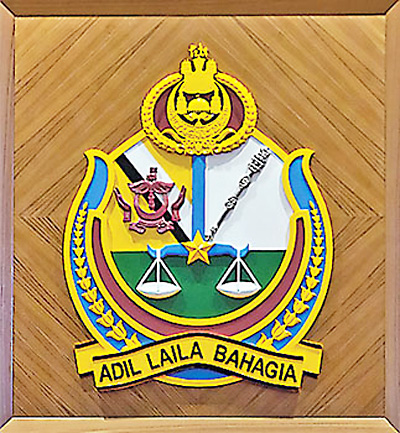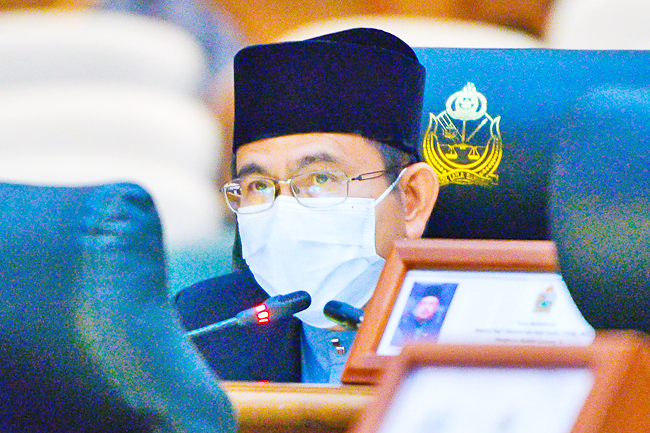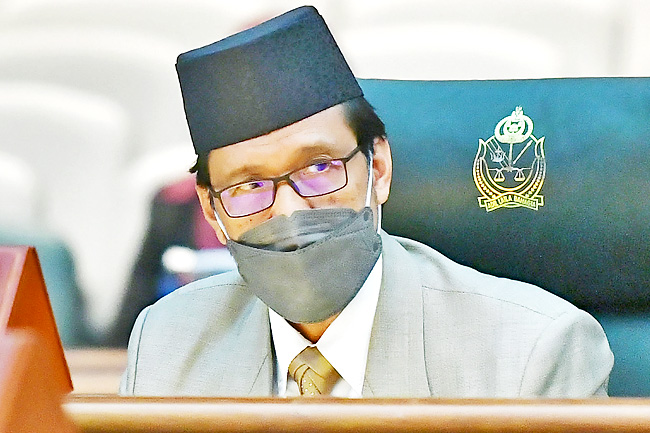Rokiah Mahmud
Legislative Council (LegCo) member Yang Berhormat Awang Haji Mohimin bin Haji Johari @ Jahari at the 18th LegCo Meeting on Sunday suggested for the Ministry of Home Affairs (MoHA) to appoint a professional consultant to formulate strategic plans as well as short and long-term planning to improve the development of mukim and Village Consultative Councils (MPKs).
He also suggested a special grant of at least BND20,000 to be allocated to each MPK annually.
“This is in view of the MPK’s slow progress in developing the One Village One Product (1K1P) initiatives. It is hoped that the fund will help to strengthen 1K1P projects,” he added.
Minister of Home Affairs Yang Berhormat Pehin Orang Kaya Seri Kerna Dato Seri Setia (Dr) Haji Awang Abu Bakar bin Haji Apong said the roadmap and strategic plans for MPK have already been implemented.
Fund allocation to strengthen 1K1P will depend on these MPK’s plans, the minister said, adding that the MPKs need to submit their projects for consideration.
“For example, if a mukim’s 1K1P project needs improvement on the condition of its kitchen to enable them to acquire and retain the Halal certification, the MoRA will review the needs for the application and provide allocation to fulfil the regulation’s requirement.



“This will be done by the steering committee of the 1K1P so that productivity of mukims and villages could be empowered and strengthened,” the minister said, adding “Some MPKs have already shown success.”
Meanwhile, Yang Berhormat Haji Mohimin suggested for the age of foreign employees working in certain sectors to be restricted to 30 and above, as there are some seen working as cashiers, salesmen, and tailors.
The restriction, he believed, will act as age-levy to pave the way for a broader opportunity for local youth to venture in those sectors.
In response, Yang Berhormat Pehin Orang Kaya Seri Kerna Dato Seri Setia (Dr) Haji Awang Abu Bakar said the Labour Department has set an age limit for foreign workers holding green identification cards which is at 55.
However, it will also depend on the sectors in question. For ordinary labour, foreigners are allowed to work until they reach 55 years. However, an exception will be granted for those working as professionals and specialists.
Workers in technical sectors are allowed to work until they are 60, while business owners or company partners are allowed to work well over 55.
“On this note, the age limit has been determined in considering their employment as well as continuing their foreign worker’s licences,” the minister said.
LegCo member Yang Berhormat Awang Hanapi bin Mohd Siput said as part of the continuous effort to strengthen the economy of mukim and villages in remote areas, a scheme called ‘Program Desa Lestari’ or ‘Sustainable Village Programme’ can be conducted under district offices to help villages reach their full potentials. In response, Yang Berhormat Pehin Orang Kaya Seri Kerna Dato Seri Setia (Dr) Haji Awang Abu Bakar said the ministry has identified programmes that can be carried out to empower and strengthen the economy of mukims and villages.
“To carry out these programmes, it is important to maximise the capability of facilities already provided by government agencies and government-link companies (GLC).
“For instance, if there is an excess capacity among a GLC’s central kitchen, it can be offered to others to utilise. We do not need to build a new facility when the existing one is fully capable of accommodating the needs,” he added.
Meanwhile, LegCo member Yang Berhormat Awang Naim bin Haji Kami queried the MoHA on its future plans to reduce the youth unemployment rate while encouraging them to be involved in 1K1P enterprises.
He also asked about the ministry’s strategy in ensuring that the 1K1P will continue to spur the economy and maintain the quality of its end products.
The minister said it has become one of the MoHA’s main focus to see that the 1K1P programme is able to improve the economy of mukims and villages and provide employment opportunities for the youth.
The issue on unemployment has been addressed by a number of government agencies, especially the Manpower Employment Council (MPEC), he added.



















































